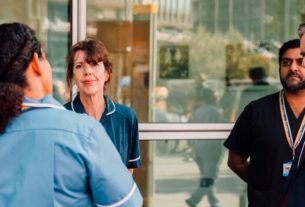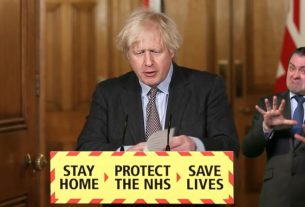A level pupils have this year become the first in British history to have their results determined by algorithm rather than results achieved in examinations taken.
Meanwhile, the number of people on waiting lists for NHS treatment has reached record levels amid calls for government action ahead of the annual NHS winter crisis which risks being compounded by a second coronavirus wave and flu pandemic.
The A’ level results released today (Thursday) show 40% have been downgraded compared to predicted grades made by teachers in light of measures taken to combat the coronavirus which saw schools closed and exams cancelled.
Ofqual – the authority regulating exams and qualifications – used a statistical model to determine students’ grades, relying on information provided by schools including predicted grades, performance ranking, past individual achievement and the historic performance of their school.
Poorest students are hit hardest by algorithm
The results show that while top marks were up 2.4% this year, poorer students were hit hardest by the downgrades while students at private schools benefitted most from the algorithm to record the highest rise in top grades.
General secretary of the Association of School and College Leaders (ASCL) Geoff Barton said headteachers were “very concerned that this disguises a great deal of volatility among the results at school and student level”.
Barton added: “We have received heartbreaking feedback from school leaders about grades being pulled down in a way that they feel to be utterly unfair and unfathomable. They are extremely concerned about the detrimental impact on their students.”
‘This has been a disaster’ – Starmer
The ASCL head is calling on the government and Ofqual to “review the situation as a matter of urgency” and warned “them against digging in their heels and insisting all is well.”
The Guardian reports possible legal action against the Department for Education and Ofqual by affected students, with a protest planned to take place outside Downing Street tomorrow (Friday.)
Boris Johnson fended off criticism calling the process for awarding grades “robust” and “dependable”, but Labour leader Keir Starmer surmised: “This has been a disaster.” Students have expressed their confusion, frustration and anger at having hopes and plans for university derailed by the algorithm’s results.
50,000 waiting more than a year for NHS treatment
A similar fate is the daily experience of more than 50,000 NHS patients who have been waiting more than a year for treatment, figures released today by NHS England show.
The grim statistics are another consequence of the government’s response to the coronavirus that saw massive intervention in the NHS with hospital wards cleared, new hospitals built and extra capacity created.
“Small miracles were achieved in the NHS,” said BBC Radio 4’s PM programme broadcast this evening today (Thursday), declaring the measures took even “hardened hospital managers back” by the scale of intervention.
Chancellor Rishi Sunak proclaimed the NHS would have “whatever it takes” to fight the virus and ‘Protect the NHS’ became a mantra repeated at every government update and briefing.
Over 1.8 million waiting 18 weeks or more
However, the action also saw treatments postponed, and surgeries and referrals cancelled with the price of policies put in place now becoming apparent. The clearest evidence being that the waiting list for routine hospital treatment in England is now at its record level, with more than 1.8 million people waiting more than 18 weeks.
In June 2020 the number of people waiting 12 months or more for treatment passed 50,000 – in June 2019 the number waiting more than a year for treatment was just over 1,000.
Furthermore, admissions this June are down almost 200,000 compared to last year leading to serious health and quality of life implications the vast numbers of people waiting for treatment.
The figures released today show that cancer referrals are down some 20% with urgent breast cancer treatment down more than 40% compared to June 2019.
Speaking on BBC radio 4’s PM show, professor Neil Mortenson, the president of the Royal College of Surgeon (RCS) said the “numbers sound just like statistics but each of those is a patient”.
Virus is a ‘wrecking ball’ and needs national strategy to address it
He called the coronavirus a “wrecking ball” that “has absolutely obliterated any plans or attempts to try and get back in control again”, and added that while there are “good signs of recovery” and work being done by NHS Trusts, the situation remains “very, very tough”.
Mortenson said the reduced number of surgeries being carried out had a “knock on effect” adding to the waiting list meaning Trusts are just “scratching the surface” in dealing with the issue.
In order to prepare the NHS for the imminent and inevitable winter pressures, as well as a potential second Covid-19 wave and a possible flu pandemic in the coming months, Mortenson called for a “massive national strategy to take hold of this.”
“Just trying to get things going again is not going to have much of an effect, I’m afraid,” said Mortenson.




